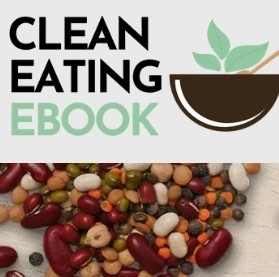The demand for organic food has been steadily increasing as consumers become more conscious of what they put on their plates. Organic food is often perceived as a healthier, more environmentally friendly option, and it has gained popularity for various reasons. This article delves into the world of organic food choices, exploring what makes them unique, their benefits, and how you can make informed decisions about incorporating organic foods into your diet.
Understanding Organic Food
Organic food is produced without the use of synthetic pesticides, herbicides, genetically modified organisms (GMOs), and artificial fertilizers. Instead, organic farming relies on sustainable and eco-friendly practices that prioritize soil health, biodiversity, and animal welfare.
Key Aspects of Organic Food
Pesticide-Free: Organic farming practices avoid the use of synthetic pesticides, reducing the risk of chemical residues on your food.
Non-GMO: Organic foods do not contain genetically modified organisms, offering a more natural and unaltered product.
Animal Welfare: Organic livestock are raised with access to the outdoors, space to move, and are not given antibiotics or growth hormones.
Soil Health: Organic farming methods promote healthy soil through practices like crop rotation, composting, and cover cropping.
The Benefits of Choosing Organic Foods
Lower Chemical Exposure
One of the primary reasons people choose organic foods is to minimize their exposure to synthetic chemicals. By opting for organic produce, you can reduce your intake of pesticides, herbicides, and potentially harmful additives.
Enhanced Nutritional Value
Several studies suggest that organic fruits and vegetables may contain higher levels of certain nutrients and antioxidants, which could contribute to better overall health.
Improved Taste
Many consumers claim that organic foods have a richer, more authentic flavor. This could be due to the absence of synthetic chemicals that might impact taste.
Environmental Sustainability
Organic farming practices are generally more sustainable and eco-friendly. They prioritize soil conservation, reduced pollution, and biodiversity preservation, helping to protect the planet for future generations.
Support for Local Agriculture
Organic farms often prioritize local markets, which helps support small-scale and local farmers. By choosing organic, you can contribute to the sustainability of your community.
Reduced Antibiotics and Hormones
Organic livestock are raised without antibiotics and growth hormones. Choosing organic animal products means supporting animal welfare and potentially reducing your intake of these substances.
Making Informed Organic Food Choices
Prioritize the "Dirty Dozen"
The Environmental Working Group (EWG) releases an annual list of the "Dirty Dozen" – fruits and vegetables with higher levels of pesticide residues. If you\'re looking to go organic but need to prioritize due to cost, start with the items on this list.
Understand Organic Labels
Organic labels can be confusing. The United States Department of Agriculture (USDA) has strict regulations regarding organic certification. Look for products labeled "USDA Certified Organic" to ensure they meet the organic standards.
Shop Seasonal and Local
Buying organic produce in season and locally can often be more affordable and sustainable. It also supports local farmers and reduces the carbon footprint associated with transporting food long distances.
Consider the "Clean Fifteen"
The EWG also releases a "Clean Fifteen" list of fruits and vegetables with lower levels of pesticide residues. If you\'re on a budget, these items are generally considered safe to purchase conventionally.
Organic or Not?
Not all foods need to be organic. Some items, like bananas with a thick peel, may have fewer pesticide residues even when conventionally grown. Use your judgment and the EWG\'s lists to make informed decisions.
Join a CSA or Farmers\' Market
Community Supported Agriculture (CSA) programs and farmers\' markets are excellent sources of organic produce. They often provide fresh, locally grown, and organic options.
Conclusion
Organic food choices offer numerous benefits, including reduced chemical exposure, improved nutrition, and environmental sustainability. While organic options may come at a higher price point, understanding how to make informed choices can help you prioritize and incorporate organic foods into your diet. By supporting organic farming practices, you contribute to your own health, the well-being of local farmers, and the conservation of our planet\'s resources. Your choices today can have a positive impact on a healthier and more sustainable future.



